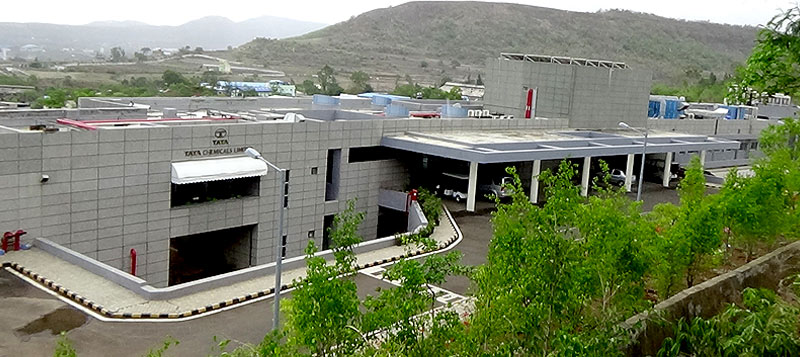Tata Chemicals Innovation Centre, Pune

Started in 2004 in Pune, the Tata Chemicals Innovation Centre is a Department of Science and Industrial Research - approved unit. The centre aims to evolve into an autonomous and self-reliant basic and applied sciences unit serving the needs of Tata Chemicals and the Tata group.
Admirable achievements
Agriculture: The Centre is working to create new, efficient and cost-effective materials that benefit farmers as well as the environment. New technology is designed for agricultural applications. Nanotechnology-based micronutrient formulations and slow release pesticides are developed to reduce pesticide application quantity while improving yield.
A seven-month collaboration between the Innovation Centre and Tata Global Beverages (TGB) has yielded FTS-01, a bio pesticide that can eliminate 80 per cent of all red spider mite infestations. It took 200 man-days of scientific work and 20 field trials to come up with FTS-01. Research in this direction was uncharted territory because bio-pesticides are virtually unheard of in India. FTS-01 is produced from extracts from botanical sources, plants commonly available and easily sourced. It not only eliminates red spider mites but has proven to be nutritious to the crop, helping it grow stronger and producing tea that tastes better.
Soda ash: Scientists at the Innovation Centre have solved a long standing conundrum in a techno-economically viable way. A recent batch of experiments found a scientific method that guarantees not only the removal but also recovery of highly reactive and valuable fluorine from trona (naturally occurring ore containing soda ash). For decades, research organisations have been unsuccessful at removing fluorine from trona in a cost effective way.
As a mineral, trona comprises sodium sesquicarbonate (Na2CO3.NaHCO3.2H2O) with water insoluble and sodium fluorine as an impurity. The soda ash produced at Magadi in Kenya contains 0.5 per cent to 3 per cent of fluoride, which limits its industrial applications. Removing impurities would extend the market for Kenyan soda ash.
Wellness foods: The Innovation Centre has a Food Formulation Lab where it tests and develops wellness foods. Opened in September 2015 by then vice chairman R Gopalakrishnan, the lab has since developed a number of wellness products. Part of its biotechnology lab has been turned into a test kitchen and bakery.
The first addition to the company’s wellness portfolio is a sugar free sweetener for use in a wide range of confectionery products. Fructooligosaccharide (FOS), sometimes known as oligofructose, is a naturally occurring dietary fibre with a sweet taste. It can be used in the manufacture of candy, dark chocolates, bourbon type biscuits, sugar free oats cookies, oats based savoury biscuits, and honey mimetic, among others.
The lab has also formulated a couple of healthy, sugar free spice-beverage mixes. These have been created using bioactives developed by the nutraceutical team. So far they’ve produced a haldi (turmeric) milk mix and a ginger fenugreek spice mix. The next objective is to transfer technologies from the Innovation Centre labs into commercial environments.
Lending a helping hand
Tata Chemicals’ Innovation Centre is working closely to support schools in the tribal area of Mohan Nagar, a hamlet in Ambervet 20kms from the city of Pune.
Mohan Nagar has one primary school with minimal facilities for its 21 students, and a pre-school area that takes care of 19 others. Low literacy rates and poor hygiene are prevalent among the sparse population of 280 people. Students from the tribal community have to walk 7kms to pursue higher studies.
The Innovation Centre has undertaken various initiatives to help these school children access the education they deserve. Company scientists regularly interact with school children, conduct experiments, and offer hygiene awareness sessions.